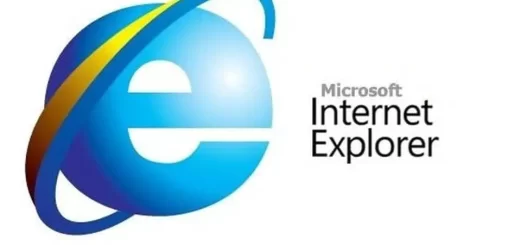Computers importance in military aerospace and disadvantages of military computers
Computers have played an increasingly important role in the military, The computers in the military have been adapted or designed to do a broad range of tasks, such as analyzing intelligence, organizing prudent data for military leaders, geospatial analysis, controlling smart weapons, or communications.
Computers in military
Military computers refer to the computers designed and manufactured based on the purpose of military usage, Military computers operate under the most extreme field environments which is much more challenging than the fields of general industrial applications, For instance, high/low temperatures in the desert, harsh battlefield, and heavy shock/vibration tactical combat vehicles, to be called “military grade”.
Importance of computers in military
The computers in the military are now used in countless ways for countless tasks, proving their importance, The computers provide a direct network to allow multiple lanes of communication between various parties within the military, communications are the most important aspect, Communication is paramount in the military as it can speed up the processes & allow for more fluid decision making.
Administratively, The computers play important roles in tracking the salaries and wages of each soldier, tracking the meal plan that the unit’s cooks are preparing for a certain amount of time, or preparing the schedules regarding training & other important events for the soldiers & their units.
Some tasks might seem mundane, but they are truly what keep the military running smoothly, Necessary for the development of guided weapons that offer accurate support for the military and reduce civilian casualties is the development of computers.
The rise in the development of Computers via the military came with the development of new weaponry and equipment such as guided missiles, which needed computers to hone them in onto their target, Another main development was the Global Positioning System or GPS.
Utilizing superb features such as GPS that allow weapons such as bombs or missiles to precisely target certain locations of objects, Utilizing the satellites to offer an exact location on Earth, The computers are needed by the military to run the system but also offer that information at the ground level to combat leaders.
Computer literate soldiers are necessary because if not maintained & operated correctly, Due to new & broadened tasks, There is a need for a more computer literate generation of servicemen and increased training in computer skills, It is possible that these computers could turn more into a liability than an advantage, But, when used properly, as they usually are, their advantage is unparalleled.
Computers serve in an array of functions & capacities, their beginnings were modest-mostly to help confirm the measurements and mathematics, however, they form a core part of almost every aspect or branch of the military, From the seemingly mundane to the tasks on the cutting edge of technology.
The advantages of having a military that utilizes computers are numerous & exponential, It is easy to say that they make the military more advanced, They speed the lines of communications, and they allow the military leaders to gain quicker knowledge of what is happening around them & then communicate that to the other leaders.
So, The essential data can be disseminated quicker, They offer the military leaders more current & exact data that they need, Whether that is mathematical/scientific data or human intelligence, The computers encourage a greater flow of information, since spreading that information is easier, So, in general, The military leaders can make more informed decisions.
The computer in the military and their roles will continue to become more advanced & critically important as time goes on, The computers help to witness what is happening now, with current & developing technology such as more autonomous drones or smaller devices that the average battlefield soldier can use.
Many military and aerospace devices range from wearable sensor systems to avionics and ruggedized computing systems, The need for increased information and processing in the field is driving the demand for enhanced computer systems and the components can withstand extreme environments.
The advent of a network-centric battlefield on which all platforms are interconnected nodes to deliver mission-critical information to authorized personnel when and where it is needed is driving the need for innovative, rugged computer systems on the battlefield, rugged electronics, whether handheld and laptop computers or embedded computing solutions are integral to mission success and, in many cases, survival.
Rugged computing is more relevant than ever before, Rugged computers can operate in harsh usage environments & conditions, Like strong vibrations, extreme temperatures, and wet or dusty conditions, ruggedized and hardened computers share the same design robustness & frequently these terms are interchangeable.
Significant development work is going on in unmanned vehicles, especially in increasing their autonomy, That will usually mean an onboard video capability, transmitting intelligence back to base, that information needs to be transmitted using high-quality codecs that retain the greatest possible image quality while minimizing bandwidth use.
With the continued increase in the processing power, communication bandwidth & wireless communication capabilities, This will continue the trend for smaller, lighter & more power-efficient systems, We will see the need to manage power in systems the way laptop computers do, being able to shut down components that are not being used & dynamically power them up as needed.
GMS has many major aerospace and defense programs and platforms on land, sea & in the air including WIN-T, DDG-M, multiple UAV platforms, manned and unmanned ground vehicles, missiles, helicopters, warfighter wearable systems, and Air Force One.
The computers designed for military applications require optimized size weight and power, every small form factor computer company designs systems to try to meet the lowest mark possible in this regard, but many fail to take into consideration the two most important factors, performance-per-watt of power and cooling.
GMS can use multi-stage regulators to achieve the highest regulator efficiency and utilize the lowest power, It is designed to operate with every GMS product to reduce power consumption, even if it is only a fraction of a watt, The other key difference is the cooling system.
Military computers can operate in very adverse environments with extremes of temperature, They may be required to operate in high salt environments such as on a ship or designed for high shock and vibration such as on a ship or submarine.
Disadvantages of military computers
Military computers are much more expensive than office computers and can require small numbers of systems leading to higher costs. Military programs last years and identical replacement hardware may be required over the life of the program.
Hazards in the field include water and corrosives, sand and wind, extreme temperatures, high shock and vibration, power interruptions, susceptibility to EMI/RFI radiation, etc. Also, the operator interface was complex, and most operating systems were not fast in operation, or easy to learn and use in pressure situations.
You can subscribe to science online on YouTube from this link: Science Online
You can download Science Online application on Google Play from this link: Science Online Apps on Google Play
The importance and uses of computer technology in pharmacy
Computers in Medicine uses, advantages and disadvantages
Computer technology in dentistry (Digital dentistry) uses, types, cons and pros



